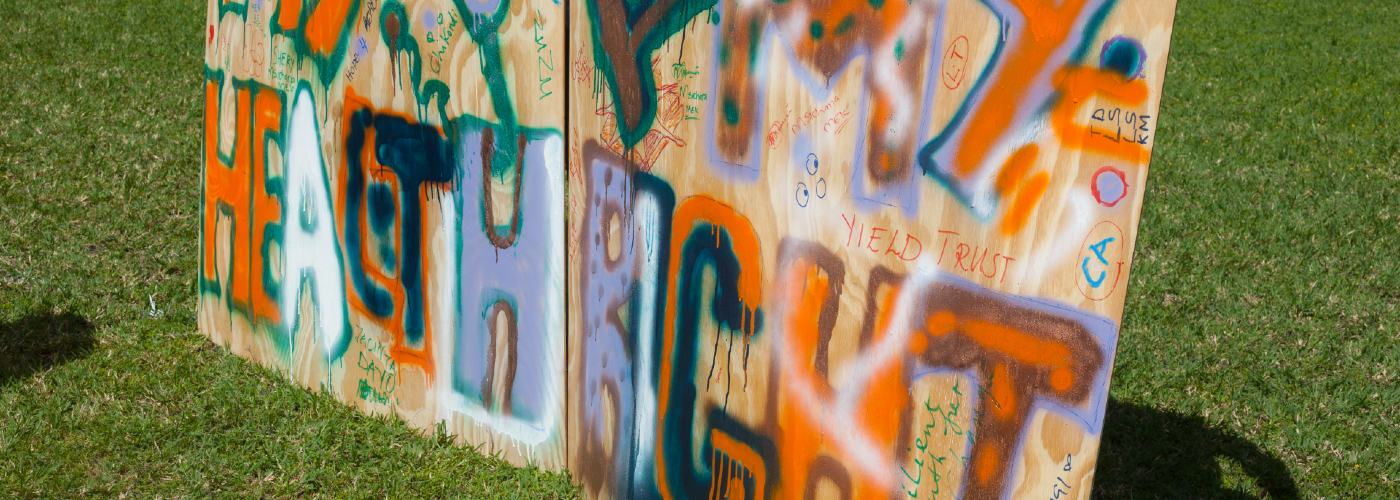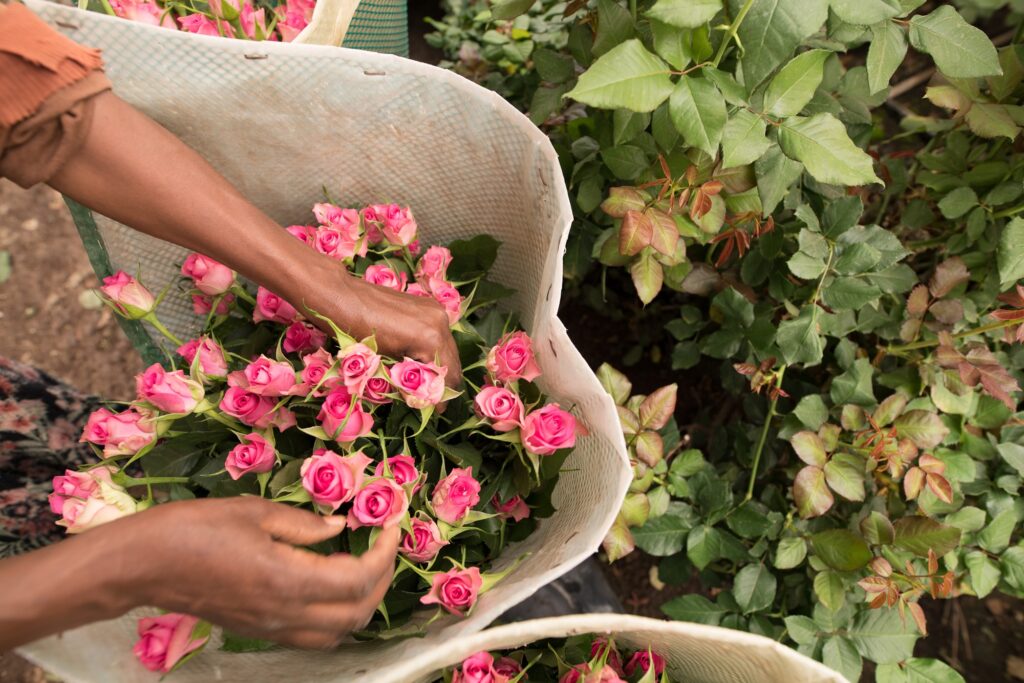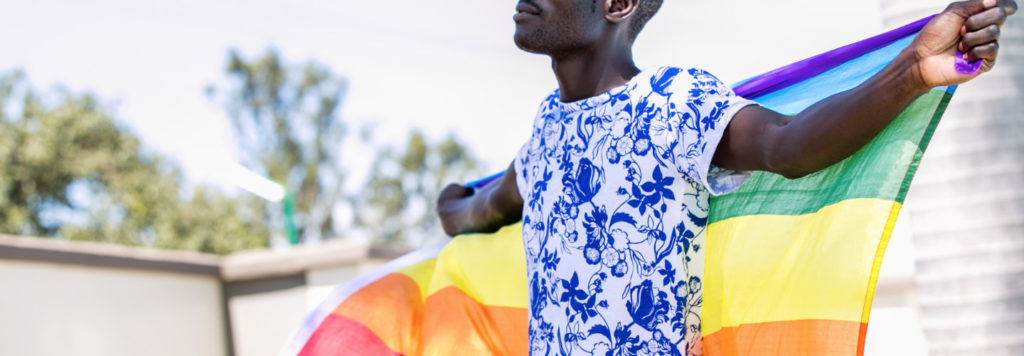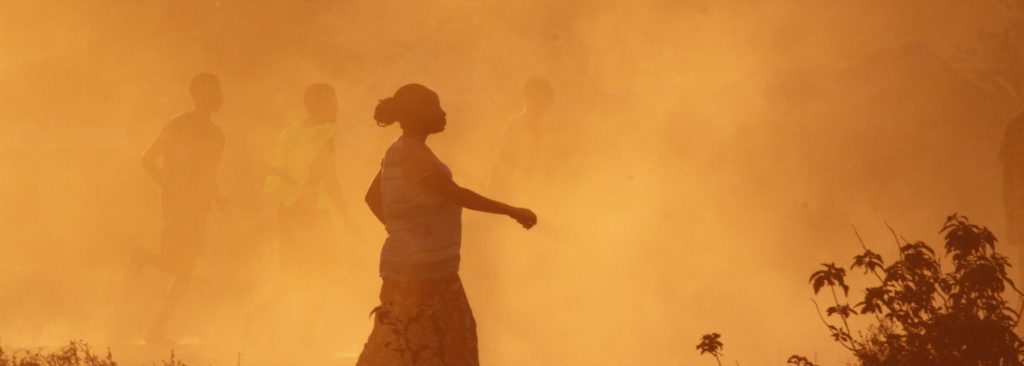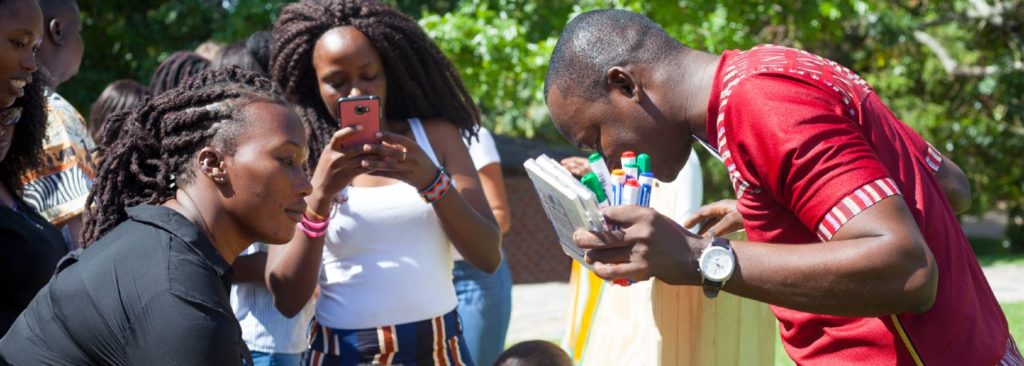Opinion by Karen Hammink and Justus Eisfeld, both Program Development Manager Sexual Rights and Diversity at Hivos
Covid-19 demonstrates once again that no disaster affects all people equally. Groups that were already pushed to the margins of society before the virus existed are likely to be most affected. Women and girls, LGBTI persons, people living with HIV or with a disability and sex workers are among those who suffer most.
These groups had difficulty accessing health care and other essential services before the Covid-19 outbreak. The stress from stigma and exclusion that already affected their health and wellbeing is now compounded by new obstacles in seeking the health care and support they need. For people living with HIV, for example, it is becoming more and more difficult to get their medication, while for trans persons it is almost impossible to access hormones essential for them.
Hivos supports groups that are currently left behind to ensure their voices, ideas, concerns and needs are heard and included in the post-Covid response.
A safe and healthy place to stay
The lockdowns implemented throughout the world further exacerbate personal and family-related problems. For many LGBTI persons, living with their homo and transphobic families is simply impossible. Gender-based, domestic and sexual violence is on the rise, and affects young women and girls disproportionally. Lesbians, bisexual women and trans people are now facing even higher risks of falling victim to such violence. Fears are real that we will see a new rise in HIV-infections, sexually transmitted diseases and unwanted pregnancies.
For LGBTI persons the situation is particularly difficult. We are witnessing intentional efforts by authorities who take advantage of the lockdowns to further marginalize and control them. In Uganda, a group of young LGBTI people were arrested for living in one building, a shelter, while they were not family. The group was taken to court, found guilty of “spreading corona” and sent to prison. The event received wide media coverage, which demonstrates how the Ugandan authorities use the situation to fuel anti-LGBTI sentiments. After they were denied bail, a Ugandan court ordered their release on May 18, after 50 days of prison. Their health situation seems to have been aggravated by their time behind bars: those with HIV had no access to medicines, while others showed symptoms of malaria and typhoid.
These same groups are overrepresented in the informal sector and have the most precarious jobs. The money they earn during the daytime is used to put food on the table at night. Not being able to work therefore means not being able to eat. In Honduras, for example, trans sex workers are unable to pay the rent for their room, and landlords threaten to kick them out. In the areas where they work and live, physical distancing is not an option.
Access to support programs
LGBTI people in particular are often openly or inadvertently left behind in the way resources are distributed and rules are implemented. In Panama, for example, the ability to leave home is determined by the sex defined on national ID cards. Trans women who have not yet been able to update their identity cards are left in an impossible bind: go out on the women’s day and risk arrest, or go out on the men’s day and face violence?
In other countries you need an identity card to receive official support (such as staple foods). Without an updated identity card, which in many countries is impossible to obtain for trans people, you are not able to receive it. Where unemployment benefits exist, sex workers and others in the informal sector often do not qualify.
Limiting access to sexual and reproductive health services
In some places, like some states in the US and Poland, authorities are using the crisis to further limit abortion rights. Lockdown measures prevent street protests, and diversion of media attention ensures limited news coverage of peoples’ grievances.
The lockdowns and increased pressure on health services caused by the pandemic make it even harder to prevent unwanted pregnancies and access sexual and reproductive information and services, including safe abortion services.
For young people it is difficult to access sexual and reproductive information and services when you have to stay home. Moreover, in many countries clinics are forced to close and if they are open, they are unreachable. Contraceptives and abortion pills are becoming more scarce because of interruptions in production and transport, and also because they are often not designated as “essential medicines.” Combined with the uptick in domestic and sexual violence, Hivos’ partners see a sharp rise in the demand for safe abortions, while they also fear an increase in sexually transmitted diseases and HIV-infections.
The pressure on health services from lockdowns and disruptions in the supply chain also limits access to services and essential medicines for persons living with HIV. Here too, people living in poverty will be affected disproportionally.
Towards an inclusive Covid-response
We support a number of partners to ensure they can respond to the short-term needs of those who are most affected by Covid-19. We help them provide their constituencies with basic staple foods, safe shelter, essential hygiene products and trustworthy information.
A longer term inclusive vision is needed.
However, this short-term support is limited in what it can do. A longer term inclusive vision is needed. Hivos supports and stands with groups that are currently left behind to ensure their voices, ideas, concerns and needs are heard and included in the post-Covid response. We want them to be able to influence key decisions that will affect their health and wellbeing and to hold those in power to account.
For sexual and reproductive health and rights this means, for example, that we lobby to ensure Covid-related health care does not divert attention and funding from sexual and reproductive health services. We understand the relevance and urgency of a sound Covid-19 response, but we cannot allow this to become an additional obstacle preventing people from taking decisions about their own bodies and sexuality. This would have devastating consequences, with rising numbers of unwanted pregnancies, unsafe abortions and sexually transmitted diseases.
At the same time, this terrible situation might create some opportunities. For example by de-medicalizing safe abortion where possible and using abortion pills instead. Or by relying on digital tools to provide access to inclusive sexual and reproductive information and services. Moreover, by ensuring that post-Covid support programs are inclusive of all groups, we can come another step closer to making the motto “Leave no one behind” a reality.

